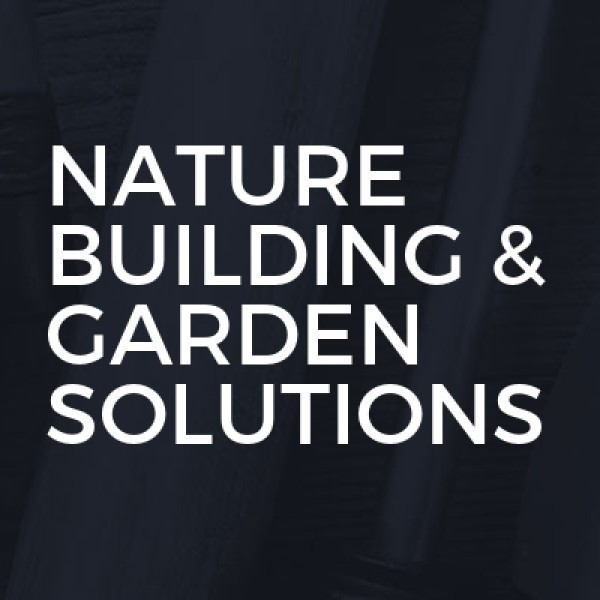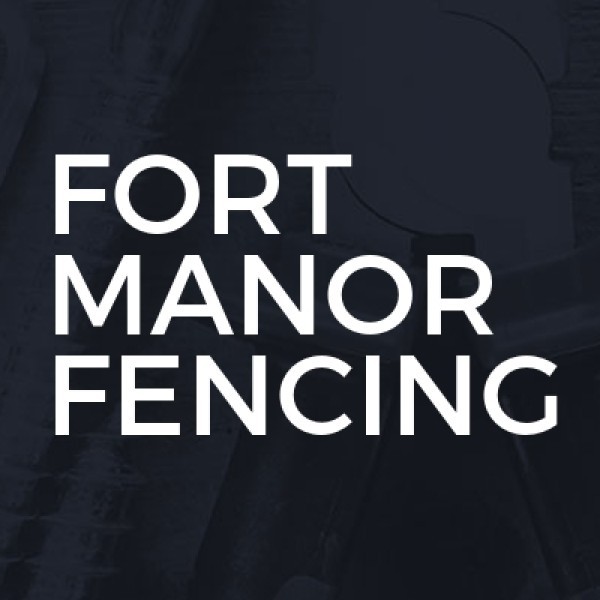Introduction to Garden Fencing in Dagenham
Garden fencing in Dagenham is an essential aspect of home improvement that not only enhances the aesthetic appeal of your property but also provides security and privacy. Whether you're a seasoned gardener or a homeowner looking to spruce up your outdoor space, understanding the various options and benefits of garden fencing can make a significant difference. In this article, we'll delve into the world of garden fencing, exploring the types, materials, installation processes, and maintenance tips that are particularly relevant to residents of Dagenham.
The Importance of Garden Fencing
Garden fencing serves multiple purposes, making it a crucial component of any garden in Dagenham. Firstly, it acts as a barrier, keeping unwanted visitors such as pests and intruders at bay. Secondly, it defines the boundaries of your property, ensuring that your garden remains a private sanctuary. Additionally, garden fencing can enhance the visual appeal of your outdoor space, complementing the overall design of your home.
Moreover, in a bustling area like Dagenham, where properties are often closely packed, garden fencing provides much-needed privacy. It allows you to enjoy your garden without the prying eyes of neighbours or passersby. Furthermore, a well-constructed fence can increase the value of your property, making it an attractive feature for potential buyers.
Security and Privacy
One of the primary reasons homeowners in Dagenham opt for garden fencing is to enhance security and privacy. A sturdy fence acts as a deterrent to burglars and vandals, providing peace of mind. It also ensures that children and pets can play safely within the confines of your garden without the risk of wandering off.
Aesthetic Appeal
Garden fencing can significantly enhance the aesthetic appeal of your property. With a variety of styles and materials available, you can choose a fence that complements the architectural style of your home and the overall design of your garden. From traditional wooden fences to modern metal designs, the options are endless.
Types of Garden Fencing
When it comes to garden fencing in Dagenham, homeowners have a plethora of options to choose from. Each type of fencing offers unique benefits and can be tailored to suit individual preferences and needs. Let's explore some of the most popular types of garden fencing available.
Wooden Fencing
Wooden fencing is a classic choice for many homeowners in Dagenham. It offers a natural and timeless look that blends seamlessly with most garden designs. Wooden fences are available in various styles, including picket, panel, and trellis, allowing for flexibility in design. However, they do require regular maintenance to prevent rot and decay.
Metal Fencing
Metal fencing, such as wrought iron or aluminium, provides a modern and durable option for garden fencing. It is known for its strength and longevity, making it an excellent choice for security purposes. Metal fences can be customised with intricate designs, adding a touch of elegance to your garden. They are also low-maintenance, requiring only occasional cleaning to maintain their appearance.
Vinyl Fencing
Vinyl fencing is a popular choice for those seeking a low-maintenance and long-lasting option. It is resistant to weathering, rot, and pests, making it ideal for the unpredictable British weather. Vinyl fences are available in a range of colours and styles, allowing homeowners to achieve the desired look without the hassle of regular upkeep.
Composite Fencing
Composite fencing combines the best of both worlds, offering the appearance of wood with the durability of plastic. It is an eco-friendly option, as it is made from recycled materials. Composite fences are resistant to rot, decay, and insect damage, making them a practical choice for Dagenham homeowners looking for a sustainable fencing solution.
Choosing the Right Material for Your Garden Fence
Selecting the right material for your garden fence is crucial to ensure it meets your needs and complements your property. Each material has its own set of advantages and disadvantages, so it's essential to consider factors such as budget, maintenance, and aesthetic preferences when making your decision.
Wood
Wood is a versatile and popular choice for garden fencing due to its natural beauty and adaptability. It can be painted or stained to match your garden's colour scheme and is relatively easy to install. However, wood requires regular maintenance, including sealing and staining, to prevent damage from moisture and pests.
Metal
Metal fencing is known for its strength and durability, making it an excellent choice for security purposes. It is resistant to weathering and requires minimal maintenance. However, metal fences can be more expensive than other options, and their installation may require professional assistance.
Vinyl
Vinyl fencing is a low-maintenance option that is resistant to rot, decay, and pests. It is available in a variety of styles and colours, allowing for customisation to suit your garden's design. While vinyl fences can be more expensive upfront, their longevity and minimal upkeep make them a cost-effective choice in the long run.
Composite
Composite fencing offers the appearance of wood with the durability of plastic. It is an eco-friendly option made from recycled materials, making it a sustainable choice for environmentally conscious homeowners. Composite fences are resistant to rot, decay, and insect damage, requiring little maintenance to keep them looking their best.
Installation Process for Garden Fencing
Installing garden fencing in Dagenham can be a straightforward process if you follow the right steps and have the necessary tools. Whether you choose to hire a professional or tackle the project yourself, understanding the installation process is essential to ensure a successful outcome.
Planning and Preparation
Before installing your garden fence, it's crucial to plan and prepare adequately. Start by measuring the area where you intend to install the fence to determine the amount of material needed. Consider the purpose of the fence, whether it's for privacy, security, or aesthetic appeal, as this will influence the type and height of the fence you choose.
Additionally, check with your local council in Dagenham to ensure you comply with any regulations or restrictions regarding fence installation. It's also a good idea to discuss your plans with neighbours if the fence will be installed along a shared boundary.
Gathering Materials and Tools
Once you've planned your fence, gather the necessary materials and tools. This may include fence panels, posts, concrete, nails or screws, a post hole digger, a spirit level, and a tape measure. Having all the required materials and tools on hand will make the installation process smoother and more efficient.
Installing the Fence
Begin the installation by marking the positions of the fence posts along the boundary line. Use a post hole digger to create holes for the posts, ensuring they are deep enough to provide stability. Place the posts in the holes and fill them with concrete to secure them in place. Use a spirit level to ensure the posts are vertical and aligned correctly.
Once the posts are set, attach the fence panels to the posts using nails or screws. Ensure the panels are level and evenly spaced for a professional finish. If you're installing a gate, follow the manufacturer's instructions for proper installation and alignment.
Finishing Touches
After the fence is installed, take the time to add any finishing touches. This may include painting or staining wooden fences to protect them from the elements and enhance their appearance. Regularly inspect your fence for any signs of damage or wear and perform necessary maintenance to keep it in good condition.
Maintenance Tips for Garden Fencing
Proper maintenance is essential to ensure the longevity and appearance of your garden fencing in Dagenham. Different materials require varying levels of upkeep, so it's important to understand the specific needs of your chosen fence type.
Wooden Fences
Wooden fences require regular maintenance to prevent rot, decay, and insect damage. Apply a weatherproof sealant or stain to protect the wood from moisture and UV rays. Inspect the fence periodically for any signs of damage, such as loose boards or nails, and make necessary repairs promptly.
Metal Fences
Metal fences are relatively low-maintenance but may require occasional cleaning to remove dirt and debris. Use a mild detergent and water to clean the surface, and inspect for any signs of rust or corrosion. If rust is present, sand the affected area and apply a rust-resistant paint to prevent further damage.
Vinyl and Composite Fences
Vinyl and composite fences are known for their low-maintenance properties. Simply wash the fence with a garden hose or a mild detergent to remove dirt and grime. Inspect the fence for any signs of damage, such as cracks or warping, and address any issues promptly to maintain its appearance and functionality.
Cost Considerations for Garden Fencing
The cost of garden fencing in Dagenham can vary significantly depending on the type of material, the size of the area to be fenced, and whether you choose to hire a professional for installation. It's important to consider your budget and weigh the long-term benefits of each option when making your decision.
Material Costs
Different fencing materials come with varying price tags. Wooden fences are generally more affordable upfront but may require more maintenance over time. Metal fences tend to be more expensive but offer greater durability and security. Vinyl and composite fences can be costlier initially but require minimal upkeep, making them a cost-effective choice in the long run.
Installation Costs
If you choose to hire a professional for fence installation, labour costs will be an additional expense to consider. Professional installation ensures a high-quality finish and can save you time and effort. However, if you're confident in your DIY skills, installing the fence yourself can help reduce costs.
Maintenance Costs
Consider the ongoing maintenance costs associated with your chosen fence material. Wooden fences may require regular sealing or staining, while metal fences may need occasional rust treatment. Vinyl and composite fences typically have lower maintenance costs, making them an attractive option for budget-conscious homeowners.
Environmental Impact of Garden Fencing
When selecting garden fencing in Dagenham, it's important to consider the environmental impact of your choice. Opting for sustainable materials and practices can help reduce your carbon footprint and contribute to a healthier planet.
Sustainable Materials
Choose fencing materials that are sustainably sourced or made from recycled materials. For example, composite fencing is made from recycled wood and plastic, making it an eco-friendly option. Additionally, look for wood that is certified by organisations such as the Forest Stewardship Council (FSC) to ensure it comes from responsibly managed forests.
Eco-Friendly Practices
Consider implementing eco-friendly practices during the installation and maintenance of your garden fence. Use non-toxic paints and sealants to reduce harmful chemical emissions. Additionally, dispose of any waste materials responsibly by recycling or repurposing them where possible.
Legal Considerations for Garden Fencing in Dagenham
Before installing garden fencing in Dagenham, it's important to be aware of any legal considerations and regulations that may apply. This ensures that your fence complies with local laws and avoids potential disputes with neighbours.
Planning Permission
In most cases, garden fencing does not require planning permission in Dagenham. However, there are exceptions, such as if the fence exceeds a certain height or is located near a road. It's advisable to check with your local council to confirm whether planning permission is required for your specific project.
Boundary Disputes
Installing a fence along a shared boundary can sometimes lead to disputes with neighbours. To avoid potential conflicts, discuss your plans with your neighbours and come to an agreement on the fence's location and design. It's also a good idea to have a clear understanding of property boundaries to ensure the fence is installed in the correct position.
Enhancing Your Garden with Fencing
Garden fencing in Dagenham offers an opportunity to enhance your outdoor space and create a beautiful and functional garden. By carefully selecting the right type and style of fencing, you can transform your garden into a private oasis that reflects your personal taste and lifestyle.
Incorporating Plants and Greenery
One way to enhance your garden fence is by incorporating plants and greenery. Climbing plants, such as ivy or clematis, can add a touch of natural beauty and soften the appearance of the fence. Additionally, planting shrubs or flowers along the base of the fence can create a vibrant and inviting garden space.
Adding Decorative Elements
Consider adding decorative elements to your garden fence to personalise your outdoor space. This may include hanging planters, outdoor art, or decorative lighting. These additions can enhance the visual appeal of your garden and create a welcoming atmosphere for family and friends.
Frequently Asked Questions
- What is the best type of garden fencing for privacy? Wooden panel fencing and vinyl fencing are popular choices for privacy due to their solid construction and height options.
- How often should I maintain my wooden fence? It's recommended to inspect and maintain your wooden fence annually, applying sealant or stain as needed to protect it from the elements.
- Can I install a garden fence myself? Yes, with the right tools and preparation, many homeowners can successfully install a garden fence themselves. However, hiring a professional can ensure a high-quality finish.
- Do I need planning permission for a garden fence in Dagenham? In most cases, planning permission is not required, but it's advisable to check with your local council for specific regulations.
- How can I make my garden fence more environmentally friendly? Choose sustainable materials, such as composite fencing, and use eco-friendly paints and sealants to reduce environmental impact.
- What are the benefits of composite fencing? Composite fencing offers the appearance of wood with the durability of plastic, is eco-friendly, and requires minimal maintenance.
In conclusion, garden fencing in Dagenham is a versatile and valuable addition to any property. By understanding the different types, materials, and installation processes, you can make informed decisions that enhance the beauty, security, and privacy of your garden. With the right care and maintenance, your garden fence will serve as a lasting investment in your home's outdoor space.


















